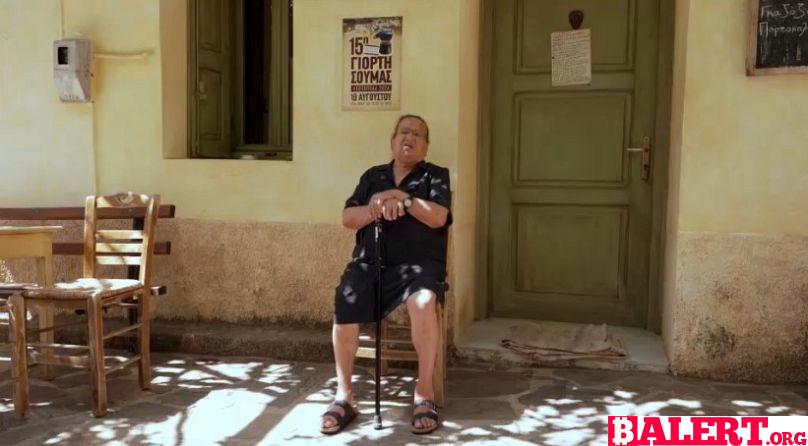World
Greece’s Population Decline: An Existential Challenge
Explore the pressing issue of Greece’s population decline, examining its causes, implications, and the existential challenges it poses for the nation’s future. Discover insights into demographic trends and potential solutions to reverse this trend.

Greece Faces a New Emergency: Population Decline
Six years after Greece officially exited its financial bailout programs, marking the end of a harrowing economic crisis, the nation now finds itself grappling with a different kind of emergency that threatens to reshape its social and economic landscape: population decline. Projections indicate that by 2070, Greece’s population could decrease by as much as 25%, significantly exceeding the EU average decline of 4%.
In 2022, the country recorded fewer than 77,000 births, the lowest number in nearly a century, while deaths climbed to nearly double that figure, reaching approximately 140,000. As of now, there are no signs that this troubling trend will change in the near future. “The demographic collapse is literally becoming an existential challenge for our future,” warned Greek Prime Minister Kyriakos Mitsotakis.
Economic Exodus

The latest population census, conducted in 2021, revealed a 3.1% drop in the overall population over the past decade, bringing the total to under 10.5 million people. This decline closely aligns with the economic crisis that gripped the nation, which led to the emigration of around half a million Greeks, particularly among the youth and educated demographics.
In some isolated villages, only the elderly remain, highlighting the stark consequences of this outmigration. Those who chose to stay in Greece continue to face a labor market characterized by high unemployment rates and stagnant wages, making it increasingly challenging to secure stable careers and establish families.
On the island of Chios, home to approximately 50,000 residents in the Northern Aegean Sea, Euronews spoke with Mary and Nikos, a couple in their early thirties who emigrated to the United States two years ago, returning only occasionally for vacations. They reflected on their choice to leave Greece, citing economic hardships as the primary driver of their decision.
“If you have to work 10 to 12 hours a day and not earn as much money as you want, how can you buy a house? And how can you raise a family? You can’t,” Mary expressed. Nikos echoed her sentiments, emphasizing that despite their love for Greece, they cannot envision returning, even if conditions improve.
Chios has a long history of emigration, with numerous generations seeking opportunities abroad. Today, it is not uncommon to see deserted villages populated only by a few elderly residents, particularly in the northern regions of the island.
Low Fertility and Longer Lives

This demographic shift serves as a stark reminder of Greece’s trajectory, as low fertility rates (currently at 1.32 births per woman) combined with increasing life expectancy contribute to a shrinking and aging population. Economists foresee dire consequences for Greece if the population continues to dwindle at the current rate.
Greek economist Nikos Vettas underscores the economic repercussions of this demographic trend, which places additional strain on Greece’s pension system and healthcare services. “The main problem is that you are going to have a smaller number of people who are working. And now these people will have to support a large population of older individuals,” he stated. However, Vettas also suggests that certain measures can be implemented to alleviate the issue: “We need to enhance productivity in the country, incorporate technology, and encourage the inflow of immigrants, particularly in high productivity sectors.”
Recognizing the urgency of the demographic crisis, the Greek government established its first-ever ministry specifically dedicated to addressing this challenge in 2023. Led by Sofia Zacharaki, the ministry has rolled out a series of initiatives, including tax incentives and increased state allowances for newborns, with the hope of boosting birth rates. While Zacharaki acknowledges that these measures alone will not resolve the issue, she emphasizes that they represent a crucial step toward tackling “the biggest threat that Greece is facing.”
Click on the video to watch Bryan’s report in full.
World
Dominique Pelicot Testifies in Harrowing Rape Trial
Join us as Dominique Pelicot courageously testifies in a harrowing rape trial, shedding light on the complexities of trauma and justice. Her powerful story raises crucial questions about the legal system and the importance of support for survivors.

Dominique Pelicot Takes the Stand in Shocking Rape Trial
In a courtroom drama that has captivated France and garnered international attention, Dominique Pelicot, the man at the center of a harrowing rape trial, finally addressed the court. With tears streaming down his face, he recounted how his wife had been instrumental in helping him cope with a tumultuous past marked by trauma. He revealed that he had endured a sexual assault at the tender age of nine while hospitalized, and he also witnessed a gang rape during his teenage years while working as an apprentice electrician on a construction site.
“She didn’t deserve this, I acknowledge that,” Mr. Pelicot stated, his voice barely audible as he struggled to convey his emotions. The gravity of the situation weighed heavily on him, and the courtroom fell silent, straining to catch his every word.
Now 71 years old, Mr. Pelicot faces serious allegations of drugging his wife, Gisèle Pelicot, whom he has been married to for half a century, over a span of nearly ten years. Prosecutors contend that he used drugs to render her comatose, allowing him to rape her repeatedly. Furthermore, authorities allege that he went so far as to invite numerous men into their home, facilitating a nightmarish scenario where they, too, engaged in the assault of his wife.
Overall, 51 men, including Mr. Pelicot, are on trial concurrently, primarily facing charges related to the aggravated rape of Ms. Pelicot. Among them, one individual has already pleaded guilty to similar crimes, admitting to drugging his own wife to assault her and inviting Mr. Pelicot to partake in the horrific act while she was incapacitated.
Mr. Pelicot’s unexpected testimony came after a tumultuous start to the trial. Just a week in, he was stricken with severe health issues that forced him to miss four consecutive days in court. The head judge ultimately decided to postpone proceedings, as Mr. Pelicot was diagnosed with kidney stones, a kidney infection, and prostate complications, adding yet another layer of complexity to this already harrowing case.
World
Meta Bans Russian State Media Outlets from Social Media Platforms
Explore the implications of Meta’s decision to ban Russian state media outlets from its social media platforms. Understand the impact on information dissemination and the ongoing battle against misinformation in the digital landscape.

Meta Imposes Global Ban on Russian State Media Outlets
In a significant move, Meta Platforms, Inc., the parent company of Facebook, has announced the prohibition of Russian state media outlets, including RT (Russia Today) and Rossiya Segodnya, from all its social media platforms. The decision stems from the company’s concerns regarding the deceptive strategies employed by these media organizations to execute covert influence operations across the internet.
Meta made this announcement on Monday, emphasizing that the ban will be enforced worldwide across its various platforms, such as Instagram, WhatsApp, and Threads. The rollout of this ban is expected to take place over the coming days.
Statement from Meta
A spokesperson for Meta elaborated on the decision, stating, “After careful consideration, we have expanded our ongoing enforcement actions against Russian state media outlets. As a result, Rossiya Segodnya, RT, and other affiliated entities are now banned from our applications globally due to their involvement in foreign interference activities.”
For further insights into this development, watch the video in the player above.
World
Trump Recalls Alleged Assassination Attempt While Golfing
Explore Donald Trump’s chilling recollection of an alleged assassination attempt he experienced while enjoying a round of golf. Delve into the tense moments and his reflections on safety, fame, and the unpredictability of public life.

In a recent interview on the social media platform X, Republican presidential nominee Donald Trump recounted a harrowing incident he claims to have experienced while playing golf. Trump described how, during a peaceful Sunday morning round with friends, the tranquility of the day was abruptly shattered by the sound of gunfire in the air.
“It was a beautiful day, everything was just perfect,” Trump reflected. “Then all of a sudden, we heard shots being fired—probably around four or five in total.” He went on to explain that a Secret Service agent was the first to spot the suspect, who was allegedly armed with an AK-47, a powerful assault rifle.
“The agent saw the barrel of the weapon and immediately took action, returning fire at the barrel and aiming in the direction of the bushes,” Trump detailed. “I would have loved to have sunk that last putt, but we decided it was best to leave the scene promptly.”
Trump expressed his gratitude towards the agents and a vigilant civilian who aided in tracking down the suspect, who was eventually apprehended following a high-speed chase.
Suspect Faces Multiple Federal Gun Charges
The FBI has identified the suspect as Ryan Wesley Routh, accusing him of targeting Trump during his time at the golf club in West Palm Beach, Florida. According to an FBI report, Routh had allegedly hidden among the hedges of the golf course for an astonishing 12 hours. Authorities discovered an SKS-style assault rifle, a GoPro camera, and a bag of food at the scene.
The 58-year-old Routh is now facing two serious federal gun charges. If convicted on both counts, he could face a combined maximum sentence of 20 years in prison. Notably, neither of the charges is directly related to an assassination attempt. The first charge pertains to possessing a firearm despite a prior felony conviction, which carries a potential 15-year sentence, a fine of $250,000 (€225,000), and three years of supervised release.
The second charge involves possession of a firearm with an obliterated serial number, which could result in a five-year prison term, the same financial penalties, and also three years of supervised release. As the investigation continues, additional charges could be forthcoming.
While the motive behind Routh’s actions remains unclear, his digital footprint reveals strong political affiliations, particularly concerning issues surrounding Ukraine and China. Routh consistently expressed support for Ukraine across various social media platforms, even claiming to have orchestrated a recruitment scheme for international volunteers aiming to assist Ukraine in its fight against Russia’s invasion. This behavior has been denounced by Ukrainian soldiers and members of the International Legion, who disavowed Routh’s actions and motives.
-

 Business7 months ago
Business7 months agoThe Significance of Jackson Hole: A Central Banking Tradition
-

 Tech6 months ago
Tech6 months agoNew Leaks and Features About the Samsung Galaxy S25 Ultra
-

 Article9 months ago
Article9 months agoCreative Design Applications Developed with Artificial Intelligence
-

 Business6 months ago
Business6 months agoBhutan’s Strategic Investment in Bitcoin: A New Era for the Himalayan Kingdom
-

 Business8 months ago
Business8 months agoObituary: Dan Collins
-

 World6 months ago
World6 months agoThierry Breton Resigns: Impact on European Union Leadership
-

 Gaming6 months ago
Gaming6 months agoNew Details and Trailer Released for Dead Rising Deluxe Remaster
-

 Gaming6 months ago
Gaming6 months agoNew Details for Alan Wake 2 and PlayStation 5 Pro Announcement












